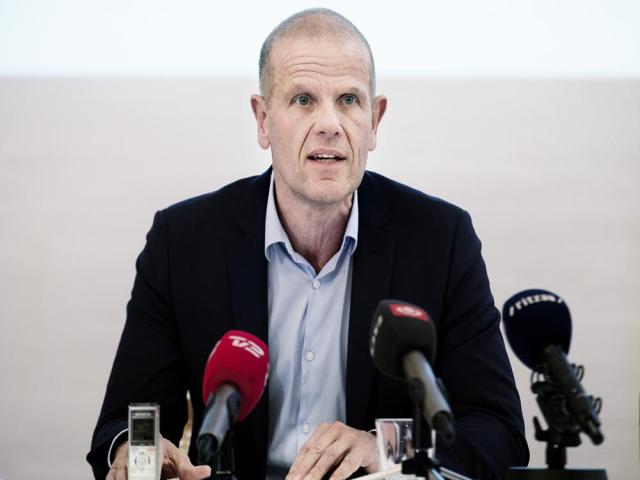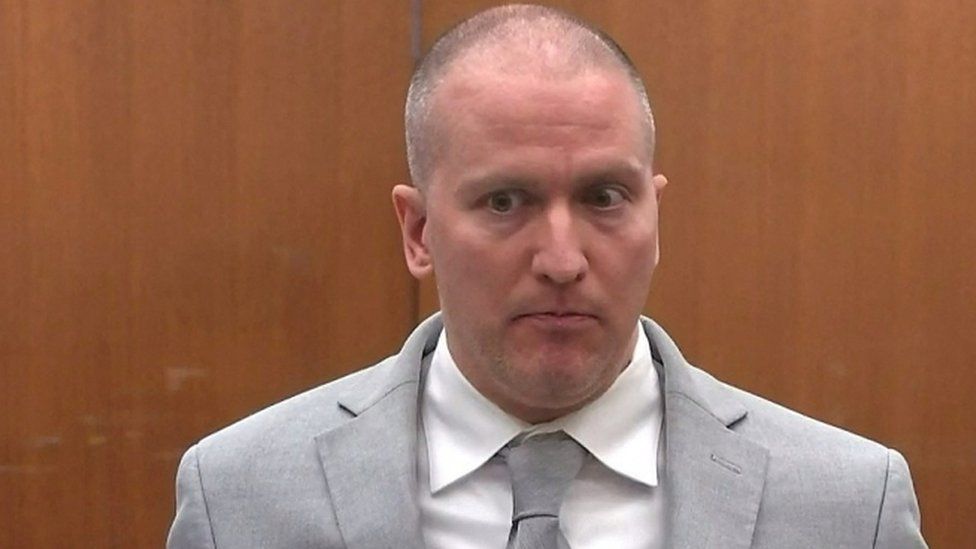Danish PM: Detention of top spy boss won’t hurt foreign ties

Denmark’s leader said Wednesday she doesn’t believe the detention of the man who has headed both of Denmark’s spy agencies at different times on suspicion of “disclosing highly classified information from the intelligence services” will harm the service’s contacts with foreign partners.
On Monday, a court lifted a name ban on Lars Findsen, who has been detained for over a month after he and three others were arrested in early December.
News of the detention of a top intelligence official immediately sparked speculations that it may harm Denmark’s two intelligence agencies’ contacts with foreign partners and that Findsen was considered too open toward the media.
Prime Minister Mette Frederiksen said she was “also very sure that the cooperation that we are very dependent on with our allies ... still can expand.” She called it “a very serious case” and that it was something that “we absolutely would have preferred to be without.”
Findsen was arrested Dec. 8 with three other suspects with Denmark’s two intelligence agencies. The three others, who have not been identified, have since been released while Findsen remains in pre-trial custody.
Like millions of others in the most locked-down place on the planet, Melbourne resident Rav Thomas dutifully spent 262 days confined to his home as the COVID-19 pandemic raged. He got vaccinated. And the single father of two found ways to pay the bills as Melbourne’s lockdowns battered his entertainment and events company.
Then in October, the city’s restrictions began to lift, along with Thomas’ spirits. His company once again began booking events as Melbourne’s nightclubs and bars reopened.
And then, omicron arrived.
The coronavirus variant has swept across Australia despite its high vaccination rate and strict border policies that kept the country largely sealed off from the world for almost two years. Those measures, which turned Australia into a virtually COVID-19-free utopia early in the pandemic, have garnered fresh scrutiny as the government has battled to deport unvaccinated tennis star Novak Djokovic ahead of the Australian Open.
They also have prompted questions from frustrated and fatigued Australians about why their country — which seemingly did everything to stop the spread of of the virus — now finds itself infested with it.
“Tell your population, ‘Stay in your houses, you can’t go past your letterbox after 8 p.m. for days and months on end.’ And then you’re told, ‘OK, we’ve put in the hard yards,’” says Thomas, whose company, Anthem Entertainment, is now facing its 23rd consecutive month of financial loss as bookings once again dry up. “But then here we go again. Again. Again!”
Officially, there are now more than 600,000 active cases across Australia’s population of 26 million, though experts believe the actual number is far higher. The surge, health experts say, is partly due to two factors: Politicians were reluctant to renege on pre-omicron promises that they would relax restrictions such as mask-wearing, and the emergence of the incredibly contagious variant.
From 2002 to 2007, Findsen headed the country’s domestic security service, known by its Danish acronym PET. He then headed the foreign intelligence service, known as FE, from 2015 until he was suspended in August 2020 after an independent watchdog heavily criticized the spy agency for deliberately withholding information and violating laws in Denmark.
Details about Findsen’s detention are shrouded in secrecy and because of the sensitivity of the case his defense lawyer cannot talk. It is not known whether his arrest is linked to his earlier suspension.
A custody hearing was held Monday behind closed doors in Copenhagen and extended Findsen’s detention until Feb. 4.
A suspect in the 2012 slayings of a British-Iraqi family vacationing in the French Alps and a cyclist has been detained, a French prosecutor said Wednesday.
Saad al-Hilli, his wife Ikbal and his mother-in-law Souhaila al-Allaf were shot dead on a remote mountain road near Annecy in eastern France. French cyclist Sylvain Mollier was also killed in the shooting. Al-Hilli’s two young daughters, who were in the car at the time of the shooting, survived the attack.
Prosecutor Line Bonnet tweeted that a person has been placed in police custody in the Chambery region “in connection with the investigation into the murders of the al-Hilli family and Sylvain Mollier, known as the ‘Chevaline events’ of Sept. 5, 2012.”
She didn’t give further details on the case because the investigation is ongoing.
French investigators have previously questioned persons of interest in the killings but nine years into the probe no charges have been filed in the case.
The al-Hilli children, aged 4 and 7 at the time, were the only witnesses to the macabre killings that have puzzled French investigators. The case has international ramifications with links tying the slain family to Britain, Iraq, Sweden and Spain.
In 2015, the prosecutor found no evidence to implicate a French motorcyclist that had been questioned by police in Annecy after British police issued a sketch of a motorcyclist seen near the crime scene.
The four victims and the two young survivors were discovered by police in a wooded area on an isolated mountain road from the village of Chevaline, near bucolic Lake Annecy in eastern France.
Eric Maillaud, the prosecutor in Annecy in 2012 said the 4-year-old girl who survived the shootings could not help their investigation because she was hiding under her mother’s legs during the killings. She was found inside the car about eight hours after the shootings.

The travelers who are turning their backs on airplanes
- The travelers who are turning their backs on airplanesThe travelers who are turning their backs on airplanes

Derek Chauvin pleads guilty in George Floyd civil rights case
- Former Minneapolis Police Officer Derek Chauvin has pleaded guilty to federal charges of violating George Floyds civil rights.

Putin heads to China to bolster ties amid Ukraine tensions
- American and European officials may be staying away from the Beijing Winter Olympics because of human rights concerns

Obama swipes at Trump for four years of active hostility on climate in Glasgow speech
- Obama swipes at Trump for four years of active hostility on climate in Glasgow speech